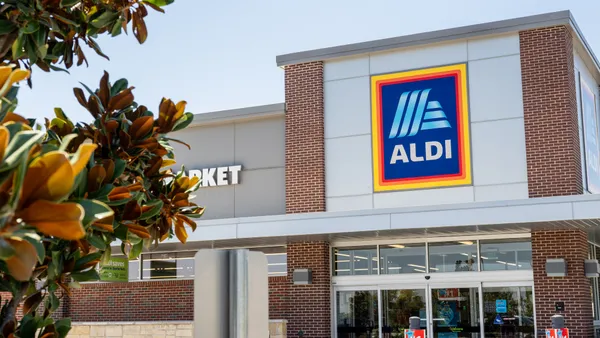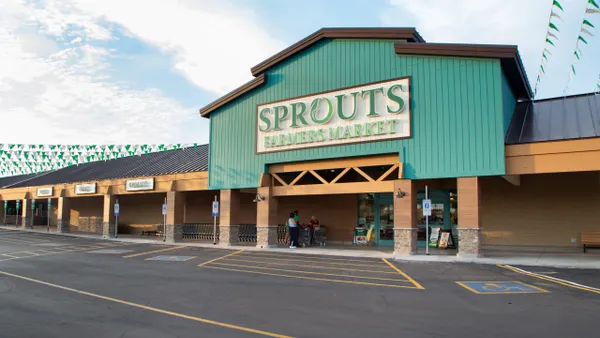Dive Brief:
- There were 527 M&A deals in the food space in 2018, which is an 11% decrease from the record number seen in 2017, according to a new report by The Food Institute.
- Supermarket M&A surged, increasing about 73% in 2018 from 2017, the report found. The largest portion of the deals (29.7%) took place in the manufacturing segment among food processors, followed by retailers and investment firms completing 16.6% and 13.9% of deals, respectively.
- Although the overall retail and supermarket sector saw increased activity last year, according to the report, "2018’s activity is beginning to reveal the start of an expected slowdown for the coming years, as consolidation, particularly in retail, becomes more difficult."
Dive Insight:
The surge in supermarket M&A is a notable pickup in activity as industry pressures — from digital transformation to the continued rise of alternative formats — continue to weigh on chains. From smaller mergers to major acquisitions, the grocery industry kept busy last year as competition and margins drove success and failure among a number of companies.
Among the most significant deals, Kroger acquired meal kit maker Home Chef along with a stake in e-grocer Ocado last year. Schnucks bought 19 Shop 'n Save stores from Supervalu in Missouri and Illinois, and Lidl acquired 27 Best Market stores in New York and New Jersey as it pursued East Coast expansion.
There were also smaller deals, such as Rouses' acquisition of three Frank's Supermarkets and Giant's purchase of five Shop 'n Save stores from United Natural Foods, converting them to Martin's.
While food M&A may be slowing overall, the grocery industry could still see a number of deals this year. In January, SpartanNash finalized its acquisition of 21 Martin's Supermarkets across Indiana and Michigan. Ahold Delhaize has also announced that it is looking for acquisitions in the U.S..
Food Institute President Brian Todd told Food Dive in an email that he expects to see high levels of M&A through 2019. Another report released this week by A.T. Kearney found that 88% of the more than 100 C-suite executives surveyed expected M&A in 2019 to be equal to or better than 2018 levels.
But the way M&A is executed could change. Mergers and acquisitions are becoming less about the size of market share and more about market disruption, Todd said in an email.
"I expect more of the smaller chains and independent stores to seek deals with larger more efficient operators," Todd said. "And of course, don't forget Amazon's recent announcement it is looking at purchasing several regional grocery chains which has many of those firms asking how to get on that line."
Grocery acquisitions have begun to reflect this need for disruption, as supermarkets are looking to boost their capabilities through acquisitions in the meal kit space and e-commerce. Kroger's Home Chef pickup is aimed at improving the grocer's prepared food and meal solution offerings in-store. H-E-B acquired on-demand delivery company Favor in a move to boost its e-commerce fulfillment offerings.
Overall, the pace of M&A across the food industry is slowing down. Last year was the second highest year for M&A in the last decade, but it was also the first decrease in the number of deals since 2015.
Manufacturers — excluding beverage producers — were the largest segment of the food space to participate in M&A, but the rate fell by 20% from 2017, according to The Food Institute's report.









